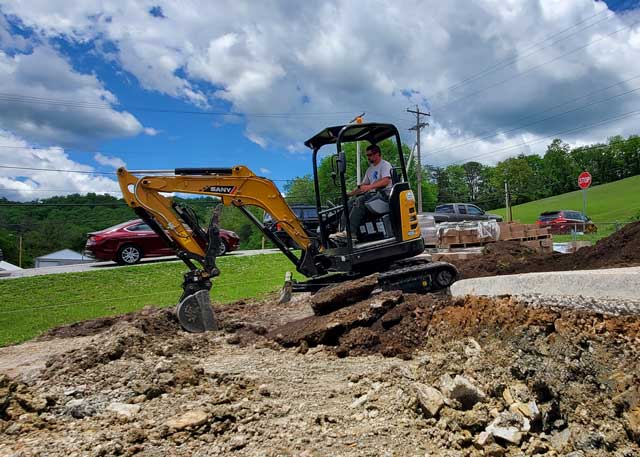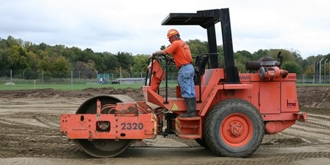Cost Effective Lancaster Excavation - High Quality Excavation at Competitive Prices
Cost Effective Lancaster Excavation - High Quality Excavation at Competitive Prices
Blog Article
Comprehensive Excavation Approaches: Mastering the Fundamentals for Success
In the realm of construction and civil engineering, the value of effective excavation methods can not be overemphasized. The careful planning, specific implementation, and precise interest to detail called for in excavation tasks demand an extensive technique that incorporates different essential facets. From first soil evaluation to the execution of safety and security procedures and regular development surveillance, understanding these core elements is vital for accomplishing success in any kind of excavation undertaking. The real proficiency lies not simply in comprehending these basics but in effortlessly incorporating them to browse the complexities of excavation jobs with finesse.
Comprehending Excavation Job Preparation

Effective excavation projects are improved the foundation of meticulous and thorough preparation. The first stage of any excavation task is the drawing board, where important decisions are made that can dramatically impact the end result of the project. Throughout this stage, it is important to gather all appropriate details about the website, including topographical surveys, dirt composition, and any kind of potential threats that may exist. Recognizing the project timeline, budget, and range constraints is critical for developing a detailed excavation strategy that ensures the job's success.
One secret element of excavation task preparation is the growth of a thorough timeline that describes the sequence of deadlines, milestones, and tasks. This timeline offers as a roadmap for the task group, enabling them to track development and make required adjustments to guarantee the project remains on timetable. Furthermore, a well-defined budget that accounts for all expenditures, consisting of equipment rental, labor prices, and materials, is necessary for preventing price overruns and delays. By very carefully thinking about all these variables throughout the drawing board, excavation projects can be carried out effectively and properly, bring about successful outcomes.
Dirt Analysis and Site Evaluation
Carrying out thorough dirt evaluation and site examination is an important action in the preparation stage of any excavation task. Soil analysis entails identifying the composition, structure, and residential properties of the dirt at the excavation website. This info is vital for understanding the dirt's bearing ability, moisture content, and capacity for erosion, which are crucial variables in establishing the excavation methods and devices needed for the job.
Website evaluation surpasses soil analysis and incorporates a wider analysis of the total site conditions. This assessment includes recognizing any prospective risks, such as underground utilities, environmental worries, or unstable terrain, that might impact the excavation procedure. By thoroughly reviewing the website, project managers can establish efficient excavation strategies that prioritize security, efficiency, and ecological protection.
Making use of innovative technologies like ground-penetrating radar, soil tasting, and drone studies can improve the accuracy and performance of dirt analysis and site analysis. Spending time and resources in these initial actions can eventually save time and protect against expensive delays or complications throughout the excavation process.
Equipment Option and Usage
Efficient excavation tasks depend heavily on calculated equipment option and use to guarantee optimum efficiency and efficiency. Picking the ideal devices for the job is critical in making the most of effectiveness and minimizing downtime. Elements such as the sort of dirt, depth of excavation, and job scope play a substantial role in determining one of the most suitable tools for the task available.

Along with picking the ideal equipment, proper utilization is key to project success. Operators should be trained to manage the devices securely and effectively - lancaster excavation. Regular maintenance checks and prompt repairs aid avoid malfunctions and make certain regular performance throughout the task
Safety And Security Actions and Rules Conformity
In the realm of excavation jobs, prioritizing safety measures and conformity with guidelines is vital to guaranteeing a safe and secure and lawfully sound functional setting. Safety measures incorporate a series of methods, including performing comprehensive website analyses, executing proper signs and barriers, and giving appropriate security training for all personnel involved in the excavation procedure. Adherence to guidelines, such as OSHA needs in the United States, guarantees that the excavation task satisfies the required requirements to protect employees, bystanders, and the surrounding environment.

Tracking Progress and Adjusting Methods
How can forecast managers properly track the development of excavation jobs and adjust their approaches as necessary to enhance outcomes? Monitoring development is essential for ensuring that excavation projects remain on track and satisfy deadlines. Task managers can utilize different tools and techniques to track development, such as day-to-day progression reports, regular website evaluations, and progressed monitoring innovations like drones and general practitioners tracking systems. By constantly checking the job's development, useful site managers can determine any kind of possible hold-ups or concerns at an early stage and take aggressive measures to address them.

Verdict
To conclude, mastering the principles of comprehensive excavation strategies is important for the success of any kind of project. By comprehending job planning, examining dirt and website conditions, selecting proper equipment, conforming with safety policies, and monitoring development, project supervisors can make certain a reliable and smooth excavation process. Executing these techniques will lead to successful end results and decrease potential dangers or problems during the excavation task.
The preliminary phase of any kind of excavation job is the planning phase, where crucial choices are made that can substantially impact the result of the job. Understanding the project budget plan, scope, and timeline constraints is critical for creating a thorough excavation strategy visit the website that ensures the job's success.
Just how can project managers properly track the improvement of excavation projects and adjust their methods appropriately to enhance results? By carefully monitoring progress and being prepared to adjust techniques, project supervisors can boost the overall success of excavation projects.
By comprehending task preparation, examining dirt and site conditions, picking appropriate equipment, conforming with safety policies, and keeping an eye on development, job supervisors can make sure a reliable and smooth excavation procedure.
Report this page